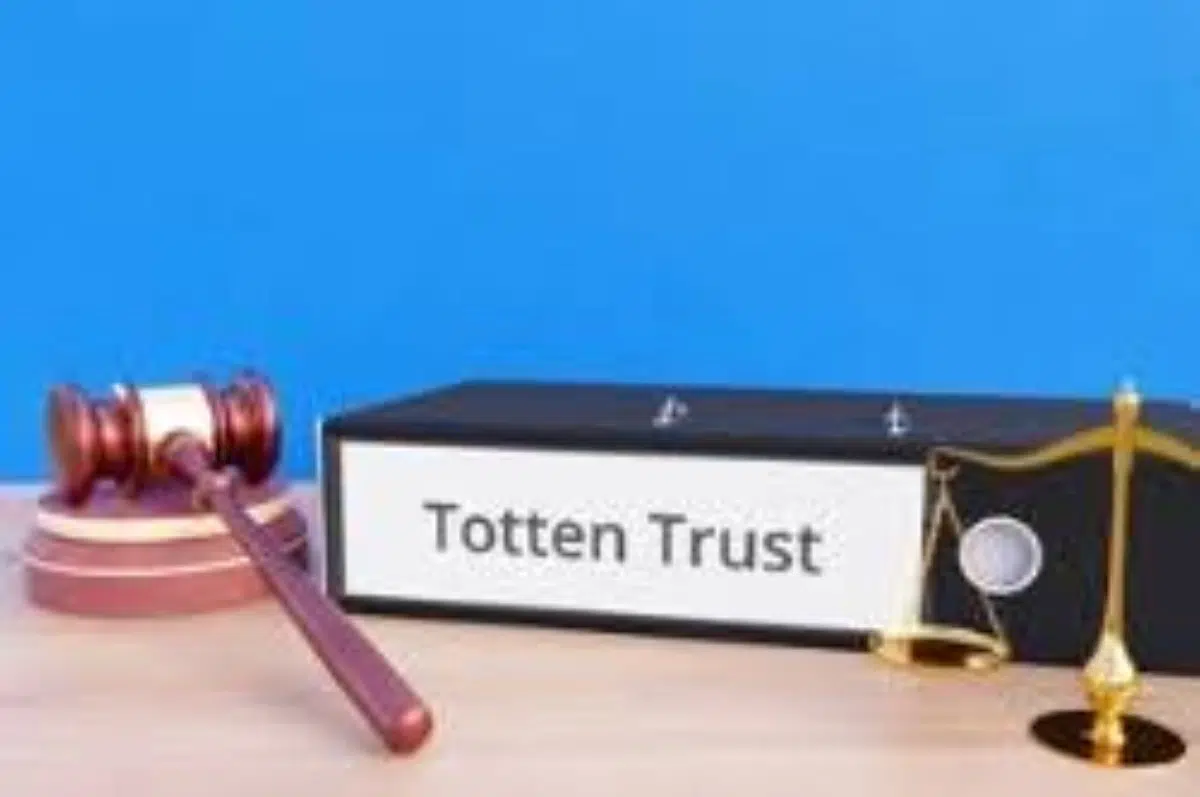
Questions about Totten trusts pop up all the time, and a lot of what people hear is half-truth at best. In St. Louis and across Missouri, we meet clients who want an easy way to pass a bank account to family without court hassles, and a revocable bank account trust, such as a Totten trust, appears to be a quick fix. At The Law Office of David S. Schleiffarth, LLC, Dave Schleiffarth and our team focus on practical planning that fits real life. In this guide, we explain what a Totten trust is, what it is not, and how it can be beneficial for avoiding probate as part of a clean, workable plan.
What a Totten Trust Really Is in Missouri
A Totten trust is created when you, as an account owner, place funds in a bank account in your name as trustee for someone else, often shown as “Your Name, ITF [Beneficiary].” It is revocable, so you retain full control while living. Upon the grantor’s death, the funds typically pass to the designated beneficiary. The concept traces back to In re Totten, 179 N.Y. 112, a 1904 case that recognized this simple, informal trust idea.
In practice, banks in Missouri often use “POD” or “ITF” language on the account title. The beneficiary has no present rights, and you can spend the money as you wish, similar to how a payable-on-death account functions. At death, the account bypasses the probate process, yet it can still face valid claims from your creditors if the estate is short on depositing funds.
Totten Trusts, Payable on Death Accounts, and Revocable Living Trusts: A Quick Comparison
| Feature | Totten Trust | POD Account | Revocable Living Trust |
|---|---|---|---|
| Main use | Transfer a bank account at death | Transfer a bank account at death | Comprehensive plan for many assets |
| Control while living | You can change or revoke anytime | You can change the beneficiary anytime | You manage assets as a trustee, and can amend while living |
| Probate process avoidance | Yes, for that account | Yes, for that account | Yes, for titled trust assets |
| Creditor exposure | Subject to valid claims | Subject to valid claims | Varies by trust type and facts |
| Scope | Single account tool | Single account tool | Broad planning tool for many assets |
| Tax inclusion | Included in taxable estate | Included in taxable estate | Included in the taxable estate if revocable |
If you hold cash at a bank and want a quick transfer on death, a Totten trust can help as one of your estate planning tools. If your goal is more comprehensive planning, such as controlling timing or protecting beneficiaries, a revocable living trust is often a better fit.
Myth 1: Totten Trusts Eliminate the Need for All Estate Planning
Totten trusts are helpful, but they are not a full plan. They are focused on bank accounts and do not set up guardians for their kids, settle personal items, or direct real estate unless it is tied to an existing account. Relying on them alone can leave big gaps, especially for the account holder’s overall estate planning.
To cover the basics, it helps to put a few core documents in place alongside any Totten trust accounts:
- A will to handle anything that does not pass by beneficiary or title.
- Durable financial power of attorney for money matters if you are unable to act.
- Healthcare Power of Attorney and Advance Directive for Medical Decisions.
That mix lets you handle life’s what-ifs, not just one bank account. You also get better control over who steps in and how decisions get made if you are laid up.
Myth 2: Beneficiaries Are Guaranteed to Receive Assets Without Issues
A Totten trust skips probate, which can speed things up, but that does not mean zero friction. If your estate owes debts and lacks sufficient funds, creditors may be able to reach the account under Missouri law. Timing and documentation at the bank can also create hiccups.
Common bumps that still come up include:
- The creditor claims that the estate is unable to pay the final bills.
- Disputes among family members about intent or capacity when the designation was signed.
- Bank delays while verifying death certificates or identity.
One simple fix helps a lot; you can designate contingent beneficiaries in case the primary person dies first or refuses the funds. You can also keep a short note with your records that lists your current designations, so loved ones know where to look.
Myth 3: Totten Trusts Provide Full Protection From Creditors or Estate Taxes
A Totten trust does not act like a shield from taxes or most creditors. The funds are generally counted in your taxable estate, just like a POD account, especially after the account’s owner’s death. Missouri rules on creditor reach can be fact-driven, and federal transfer taxes use federal thresholds, not account titles.
Here is a quick way to think about asset protection and limits:
- Probate avoidance, yes, but creditor exposure can still exist if the estate is short on cash.
- The income tax treatment remains unchanged while you are living; it is still your account.
- Estate tax inclusion is typical for revocable tools, including Totten trusts.
Rules differ across states, and banks have their own forms. If your situation includes business interests, larger balances, or blended family goals, it is wise to check Missouri rules and coordinate titles with the rest of your plan.
Myth 4: Totten Trusts Cannot Be Changed or Revoked
Totten trusts are revocable, and that flexibility is one of the biggest advantages. You can change beneficiaries, withdraw every dollar, or close the account at any time. The beneficiary has no rights while you are living, so you stay in the driver’s seat.
A few simple habits keep things tidy. Review beneficiaries after major life events like marriage, divorce, births, or deaths. Match names and percentages across your bank accounts, life insurance, retirement plans, and any trust you already have, so everything points in the same direction.
When to Seek Guidance From a Missouri Estate Planning Attorney
Totten trusts are simple by design, but your estate planning goals might call for more than a single account tool. If you want to stage distributions, protect a child with special needs, or plan for a second marriage, a broader plan helps. That is where a local attorney can add real value.
Talk with a Missouri estate planning lawyer if any of these apply:
- You own real estate, a business, or retirement accounts with large balances.
- You want creditor protection or spendthrift controls for heirs.
- You need guardianship terms for minor children or care directions for a loved one.
- You have a blended family and want to balance support for a spouse and children.
- You prefer privacy and structure beyond a single bank account.
An attorney can synchronize your Totten trust with your will, powers of attorney, healthcare directives, and any other revocable living trusts you may use. That coordination ensures that titling, beneficiary forms, and instructions are aligned with Missouri law, which an experienced estate planning attorney is best equipped to handle.
Do You Need Help with Estate Planning? Contact Us Today
We help Missouri families set up clear plans that work in real life, from simple beneficiary accounts to full trust-based planning. If you have questions or would like a second look at your bank designations regarding your surviving spouse, feel free to call 314-448-0527 or reach us through our website. At The Law Office of David S. Schleiffarth, LLC, we take pride in friendly service and careful drafting that reflects your goals. Dave is actively involved in the St. Louis community, and our team welcomes your questions, whether you are starting fresh or updating an existing plan throughout your lifetime.
Frequently Asked Questions About Totten Trusts
1. Can I set up a Totten trust with a savings account or a certificate of deposit (CD)?
Yes, Totten trusts can usually be created on most deposit accounts, including checking, savings, and certificates of deposit. The key is that the account must allow a “Payable on Death” (POD) or “In Trust For” (ITF) designation. Each financial institution may have slightly different forms or rules, so it’s smart to confirm with your bank before setting one up.
2. How does a Totten trust differ from a revocable living trust when transferring assets?
A Totten trust only applies to the specific bank account it’s attached to. A revocable living trust, on the other hand, can hold a variety of assets, such as real estate, investments, and personal property, and offers more control over when and how beneficiaries receive them. Many people use both together, with Totten trusts handling smaller accounts and the living trust covering everything else.
3. Can I move money or assets from a Totten trust into a living trust later on?
Absolutely, since a Totten trust is revocable, you can withdraw funds at any time and transfer them into another account, including one owned by your revocable living trust. Be sure to update your records so that your new account titles and beneficiary designations align with your overall estate plan.
4. Are Totten trusts useful for couples with joint accounts?
They can be, but it depends on how the account is titled. If you and your spouse share a joint account with right of survivorship, the surviving spouse usually inherits the funds automatically. However, adding a Totten trust or POD designation can help direct where the funds go after both account holders pass away.
